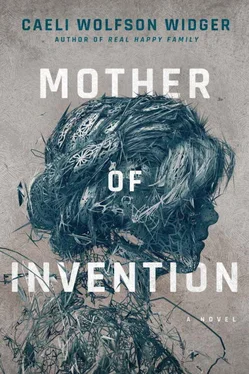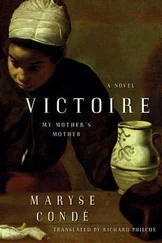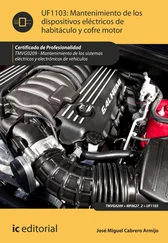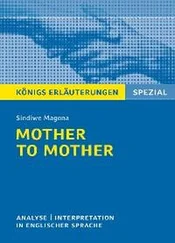He understood her. Most men only pretended to. Tessa felt it in the rote, dismissive quality of their nods, how their eyes slid away from her as she spoke about biological injustices and the unique burden reproductive capabilities posed to modern women. While many men mocked her (and they did, behind her back, or on various media platforms, or sometimes to her face), called her bitter , referred to her as a Silicon cougar , accused her of being antifamily , Peter loved her for who she was. For the things she cared about. Never mind that he’d given up on ZSY. Never mind that he was still adrift at the midpoint of his life. None of this mattered in the face of the way he loved her.
“Just the check, then?” said the waiter.
“Yes,” said Peter and Tessa, together. When he’d left them alone again, against the choppy hum of the growing crowd in the restaurant, Tessa reached across the table and cupped her hands over Peter’s.
“Look, I’m listening. I’m hearing you. But I need some time to think about it.”
She watched the change settle over his face, an easing, as if a valve had been released. He did not actually smile, but she could feel it.
“All the time you need,” he said.
In the end, she’d said yes. Peter had been elated and grateful, and Tessa had found her own excitement at the prospect of a baby growing—not as much as Peter’s, but still. They’d begun “trying.” And trying, and trying. Two years later, after the failure of IUI and IVF, after countless hormone injections and four miscarriages, not including the ectopic pregnancy, Tessa had had enough. Their looping monthly cycle of hope followed by the dashing of hope was unacceptable. Not to mention the ongoing physical discomfort. Her body was saying no, and her spirit wearing down.
A child was simply not in the cards.
“It’s time to stop,” she finally told Peter, surprised by the lump in her throat, when yet another white plastic stick flashed the words NOT PREGNANTat her. They’d been sitting on the duvet of their freshly made bed, late-morning sunlight playing on the wood floor. They were both forty-two years old.
Peter was silent for what seemed a long time.
“Okay,” he half whispered.
“Maybe it will just happen,” Tessa said. “You hear about it all the time. The couple finally lets go, and then…”
“I’ve heard,” Peter said.
“So we’ll stop all the interventions, but we’ll stay optimistic.”
“I guess,” he said sadly.
She took his hand and they sat without speaking.
Then he said, “What about adoption?”
Tessa felt something turn and retreat inside her. She thought of the vast amount of paperwork adoption required, about the viewing of children’s profiles— Is she the one? Is he? —about how the agencies would favor younger applicants over Peter and her, stretching out the timeline indefinitely. She thought of the old book Are You My Mother? , which she remembered finding achingly sad when she’d read it as a child.
No. Adoption would only present a new set of major hurdles. Even if it ended well, even if they were able to adopt an infant (she did not have the confidence for an older child) in less than the year it typically took, the process would claim too much of her mind and effort. She’d gone through enough in the past two years. She needed to get back to work.
She squeezed Peter’s hand and looked into his eyes. “I’m so sorry,” she said, her voice quavering. “But no.”
“What about a surrogate?” Peter was beginning to sound desperate. “I’ve done a little reading on the process.”
“So have I,” Tessa sighed. “It’s a legal nightmare. And bringing a third person into the mix is potentially messy. I’ve read too many cases of surrogates forming attachments and wanting to be involved with the baby.” She did not add her third concern, which was the harsh public speculation that would surely arise if she paid another woman to carry her child.
The next morning, when she’d awoken, she had felt happier than she had in ages. Lighter, full of new possibility, the future suddenly bright and beckoning.
She had an idea. She went straight to her office and began drafting a proposal for what would become Seahorse Solutions, a blueprint for the revolution of motherhood.

Beside her, Peter continued to sleep. Tessa considered waking him; she had just an hour until she needed to leave for the Seahorse Solutions Center in Moss Beach, headquarters of the company she’d conceived of on that morning two years ago. Today, Seahorse would begin a clinical trial of its most radical component: a breakthrough reproductive elective called Targeted Embryonic Acceleration Technology (TEAT). Because of the sensitive nature of the Trial, Tessa and her co-CEO, Luke Zimmerman, would spend as much time as possible at the facility for the nine-week duration of the Trial. The facility had a number of residential suites, and today Tessa would move into one of them. She’d be less than an hour from Peter, and he was welcome to visit, but still. She would be fully occupied with the Trial. She would probably not lie in bed with him again until it was fully under way, and the women of Cohort One were secure in their pregnancies.
The separation was critical to her work but would not be good for her marriage, which, it had turned out, was a thing that needed constant tending, like a garden of delicate flora. She tried her best, but it was tough to find enough time to be with Peter, and when she did, it was sometimes hard to get it right. When they had “downtime” together, she too often got the palpable sense of some invisible, soundless countdown taking place—an imposed urgency that distracted her. Then Peter would ask her if she was really present , which never helped.
She wanted to be more present with him. She did. But she often failed.
Last night, for example: Peter’s lips eager on her neck, his fingertips tracing the curves of her sides. Why had she stopped him? Why had she been unwilling to sacrifice a measly ten minutes of sleep? Why had she felt so entitled to that sliver of time, so impelled to claim it as her own?
She reminded herself of her own mantra.
Never apologize for your honest desire.
Time is a feminist weapon.
Banish the g-word.
But she couldn’t. The sight of the pile of clothes strewn across the bedroom floor—Peter’s jeans, inside out; a gray silk work shirt of hers, twisted up with her black bra—triggered the familiar, unpleasant sensation in her chest: regret. The heap suggested an urgency she’d wanted to inhabit last night. She’d wanted to be a wife who couldn’t keep her hands off her husband at the end of a weeknight dinner date. Who wanted him so much that she couldn’t bother to properly unbutton her two-hundred-dollar silk shirt.
Last night, she’d almost been that wife.
She reached over and grazed her hand over his head, enjoying the bristle of his short, dense hair against her palm. She felt desire stir inside her, a sensation of weakening. She maneuvered to Peter’s side of the bed and curled her body into his. She already missed him, preemptively, intensely.
Where had her tenderness been last night?
Their farewell at Angelini, the tiny Italian place in Palo Alto. They’d shared their ritual meal—the mushroom toast, the squid ink pasta, the bottle of Mendocino Syrah—and managed to avoid the fraught topics, as they’d agreed in advance: Peter’s unemployment, Tessa’s overemployment. Most of all, the Seahorse Trial.
Читать дальше













